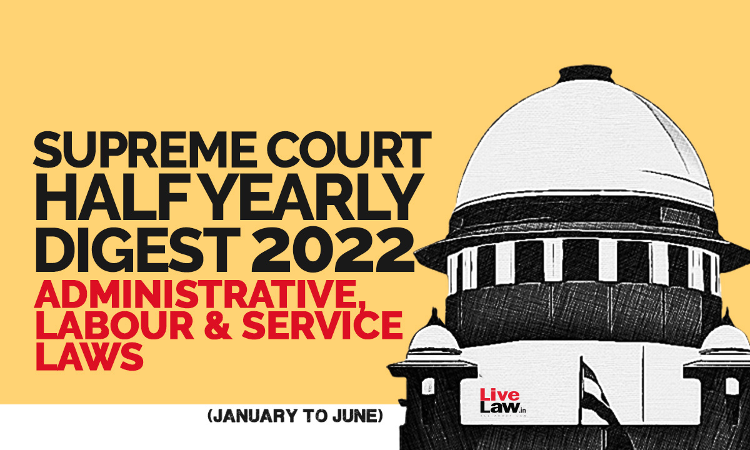Supreme Court Half Yearly Digest (Jan - Jun) Administrative, Labour & Service Laws
LIVELAW NEWS NETWORK
17 Sept 2022 7:33 PM IST

Next Story
17 Sept 2022 7:33 PM IST
Administrative Law - Appeal challenging adverse Remarks made in the Allahabad HC judgment regarding a Statutory authority - Allowed - Even if the High Court found that the impugned actions of the authorities concerned, particularly of the appellant, had not been strictly in conformity with law or were irregular or were illegal or even perverse, such findings, by themselves, were not...
